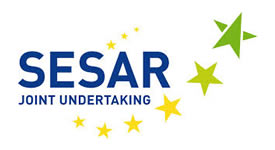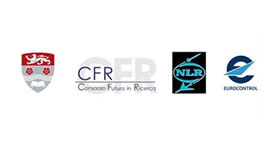Completed projects
Completed projects from the Centre
Completed projects from the Centre

An optimization framework for trajectory-based operations. OptiFrame is a two-year SESAR 2020 Exploratory Research Project led by Lancaster University in partnership with EUROCONTROL (European Organisation for the Safety of Air Navigation, Belgium), CFR (Consorzio Futuro in Ricerca, Italy) and NLR (Stichting Nationaal Lucht- En Ruimtevaartlaboratorium, The Netherlands). The project started on 1 March 2016, and will be completed on 28 February 2018.
Optiframe website
The main objective of the OptiFrame research project is the application of principles of mathematical modelling and optimization to configure and assess the performance of the Trajectory Based Operations (TBO) concept. The focus is on the pre-tactical operations planning phase.
The project aims to verify the viability of the TBO concept, to identify barriers and enablers associated with the concept, to understand whether, under which conditions, and to what extent the objectives of : i) airspace users’ flexibility, and ii) predictability of the ATM system, can be achieved. In particular, OptiFrame seeks to demonstrate that it is possible to assign trajectories to all flights operating in the entire ECAC area, taking into account the preferences of all users (i.e., airlines) and optimizing the overall air traffic system efficiency.
The primary outcome of this research project is a framework that can be used:



Lancaster University is a dynamic and multidisciplinary university ranked in the UK Top 10 and as one of the top universities in the world. At Lancaster, the OptiFrame project will be undertaken by the Centre for Transport and Logistics (CENTRAL), a recently established research centre within Lancaster University Management School. In addition to coordinating the OptiFrame project, CENTRAL will contribute to the following OptiFrame activities:
CFR (Consorzio Futuro in Ricerca)is a non-profit research organisation with public and private participation aiming at the promotion, development and evaluation of human, scientific, technological and economic resources and whose main purpose is to conduct fundamental research, industrial research or experimental development and to disseminate their results via means such as teaching, publication or technology transfer.
The core activity of CFR within the OptiFrame project is the design and development of a Data Management Platform that will be used to interface the models adopted in OptiFrame with the existing databases.
EUROCONTROL, the European Organisation for the Safety of Air Navigation, is an intergovernmental Organisation with 41 Member States, committed to building, together with its partners, a Single European Sky that will deliver the ATM performance required for the 21st century. EUROCONTROL employs more than 1,900 professionals spread over four European countries. Their expertise is deployed to address ATM challenges in a number of key roles in the ATM domain, and not least, in the European ATM research.
In the OptiFrame project, EUROCONTROL will contribute to set the project baseline, by directly consulting major stakeholders (ECTRL NM, ANSPs, Airspace Users) for ensuring coherency between the current SESAR R&D Initiatives and the concept to be developed by OptiFrame.
NLR (the Netherlands Aerospace Centre) is a non-profit technological research institute in the Netherlands performing applied aerospace research on areas such as aerospace vehicles, aircraft systems and applications, air traffic management, and related research. The activities include concept development, system technology, advanced information processing and planning, human factors, and simulation.
NLR’s national and international activities are performed by around 660 scientists and engineers working in projects that are market oriented, independent, socially relevant, and without profit priority.
Within the OptiFrame project, NLR will be responsible for three main areas of expertise and related activities. NLR will provide experience and expertise on:

The OptiFrame Project is led by Lancaster University and the Centre for Transport and Logistics (CENTRAL), in partnership with CFR, EUROCONTROL and NLR. A Steering Committee, composed of four members - one representing each organisation participating in the project - has the responsibility to monitor the project progress and to support strategic decision making for the development of the project.
An Advisory Committee of stakeholders has been established to ensure the alignment of the scientific activities, project results and deliverables to the stakeholders’ expectations, to the Industrial Research SESAR2020 Projects, the European ATM Master Plan and the SESAR Concept of Operations.
The OptiFrame project is organised into the following work packages (WPs):
Our OptiFrame staff include the following members: